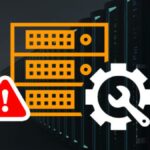Personality assessments transform workplace culture by providing insights into employees’ motivations, communication styles, and behavioral tendencies. They guide team formation, leadership development, and conflict resolution, ensuring diverse work styles complement each other. As companies navigate hybrid models, rapid growth, and evolving employee expectations, these assessments are transforming organizational dynamics and helping workplaces thrive.
The Growing Use of Personality Assessments at Work
The workplace is undergoing rapid transformation, with organizations seeking new ways to identify talent, strengthen their culture, and foster successful teams. Personality assessments are one of the most potent tools to emerge during this evolution. Tools like the Caliper Assessment are now central to modern recruitment and development practices, offering a structured, evidence-based approach to understanding individual strengths and areas for growth. These assessments are no longer reserved just for executives or upper management; they have become accessible and beneficial for employees at all levels and in various industries.
As remote and hybrid work models grow, more employers use personality assessments to gain deeper insight into employee fit and potential beyond resumes or interviews. These tools identify if candidates are suitable for roles and assist managers in supporting employees’ growth. Organizations can better align individuals with teams by understanding personality profiles, spot future leaders, and develop targeted programs. When used well, assessments promote discussions about team composition, adaptability, and engagement. In fast-paced environments, these insights help maintain a motivated, cohesive workforce.
The Science Behind Personality Assessments
Reliable personality assessments, supported by decades of science, measure traits like extraversion, emotional stability, and conscientiousness through rigorous testing. Frameworks like the Big Five predict workplace outcomes such as job performance and leadership. Using validated tools helps organizations make less biased, confident decisions, making assessments trusted predictors of on-the-job behavior. Tools like the Caliper Assessment use proven psychometric methods to provide consistent, actionable hiring and leadership development results, identifying red flags or high-potential candidates for succession planning. Relying on science reduces costly hiring mistakes and promotes diverse, resilient teams. As workplaces evolve, evidence-based personnel decisions will become crucial for success.
Personality Assessments In Modern Hiring Decisions
Personality assessments are increasingly used in hiring and promotions to identify potential candidates. These assessments provide a more objective way to compare candidates, revealing their working styles, responses to challenges, and qualities. They can highlight candidates who thrive in roles requiring resilience, creativity, or customer-facing responsibilities. Harvard Business Review research shows that organizations use personality data for hiring, promotions, and internal moves to ensure people are placed in roles where they can excel and contribute meaningfully to company goals. This approach mitigates unconscious biases in traditional interview processes, leading to higher retention, productivity, and employee satisfaction.
Improving Workplace Culture through Self-Knowledge
Fostering a positive, sustainable workplace starts with self-awareness. When employees understand their strengths and growth areas, they’re more effective at communication, feedback, and tackling challenges. Teams benefit from awareness of diverse working styles and open discussion on collaboration. Managers can tailor leadership to individual needs and encourage honest interactions. Leaders foster belonging and appreciation, boosting morale and reducing stress. Regular assessment builds psychological safety, trust, and continuous growth. Valued employees speak up, share ideas, and give feedback, leading to innovation, less conflict, and a stronger community. As workplaces grow more diverse, personality assessments help bridge gaps and improve resilience.
Bringing Out the Best In Team Dynamics
Great teams thrive not because their members are alike, but because their differences create balance and spark innovation. Leaders can use personality assessments to gain visibility into team dynamics, assign roles that capitalize on individual strengths, and navigate potential friction proactively. These data-driven insights foster transparent conversations about group norms and expectations, empowering teams to work harmoniously towards shared objectives. By understanding team preferences, such as caution or risk-taking, and identifying members’ needs for structure or autonomy, managers can mediate conflicts, foster creativity, and ensure collective goals are met. This knowledge leads to stronger performance across departments and prevents miscommunication.
Recognizing the Benefits and Limitations
While personality assessments provide key data, they should be just one of many tools. Results need interpretation based on workplace context, leadership styles, and culture. Relying too much on one assessment can hide nuanced factors affecting performance. The best results combine objective data with observations, interviews, and reference checks. Using multiple methods makes hiring and development fairer and more thorough. It’s also vital that these tools promote fairness and inclusivity. Studies highlight the need for transparency and ongoing education to prevent misinterpretation and increase employee trust. Clear communication about data use and regular reviews help ensure tools stay relevant as workplaces evolve.
Future Trends in Talent Management
Integrating artificial intelligence and data analytics is poised to revolutionize how organizations use assessment data. In the near term, greater sophistication will mean more personalized recommendations for team formation, leadership development, and succession planning. Algorithms can help identify emerging leaders, match employees with upskilling opportunities, and support diversity initiatives in real-time. As organizations continue to leverage technology, respecting candidate privacy and ensuring tools remain free of systemic bias are top priorities. The future of talent management lies in deploying assessments thoughtfully, as part of a larger strategy to unlock every employee’s fullest potential.
Getting Started With Assessments in Your Organization
Introducing personality assessments into your organization should begin with choosing a scientifically validated tool and piloting it with a select group. Provide thorough training for all participants—managers and employees—to interpret and apply results constructively. Foster an open dialogue about how the data will be used, emphasizing that assessments are a springboard for growth rather than judgment. It’s also vital to set clear guidelines around data privacy and ethics, ensuring everyone knows their results will be used transparently and with respect. Ultimately, a culture that values curiosity and self-improvement is best prepared to weather change and lead in tomorrow’s workplace. When implemented thoughtfully, personality assessments can move organizations toward a more engaged, resilient, and high-performing future.
Conclusion
Personality assessments transform how organizations attract, develop, and retain talent, offering a structured and evidence-based approach to understanding individuals’ strengths, motivations, and work styles. By promoting self-awareness, enhancing team dynamics, and supporting objective decision-making, these tools help build inclusive, adaptable, and high-performing workplace cultures. While assessments should be used alongside other evaluation methods and interpreted thoughtfully, they provide invaluable insights that guide hiring, leadership development, and employee growth. As technology and analytics continue to advance, organizations that integrate personality assessments ethically and strategically will be better positioned to foster engagement, innovation, and resilience in an ever-changing work environment.







